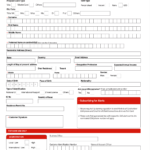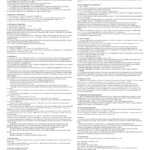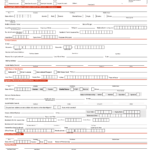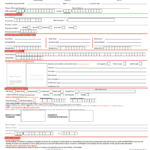November 6, 2022
How to Make International Payments Online from Nigeria

Viki Johnson
Article, Finance
I’ll recommend three ways you can get a USD/GBP/EURO debit card to make international payments online — depending on the nature of the payments and how frequently you need to make them.
Hey there! Are you having trouble making international payments with your Nigerian debit card? Don’t worry, you’re not alone. Everyone in Nigeria is facing the same struggle.
It all started in August 2020, when Nigerian banks reduced the initial $500 per month limit on naira cards to $100 per month. Quite ridiculous, right? I know. This trend started as far back as April 2015, when the limit was reduced from $12,500 to $4000 per month. But that one did not concern me. Well, the trend continued for long, hitting some pretty unbelievable lows. From $100 to $50 or $20 in some banks, and now $0. Meaning that you can no longer make international payments with your naira cards.
These limitations were made based on directives given by the central bank of Nigeria (CBN) due to a shortage of dollars in the country, which led to a decline in our foreign exchange earnings.
So how can you make international payments online now?
You can do so by using foreign currency debit cards instead. I’ll recommend three ways you can get a USD/GBP/EURO debit card to make international payments online — depending on the nature of the payments and how frequently you need to make them. Read through them carefully so you can easily determine which option best suits your use case. As always, I gatchu! *wink.
1. Get a virtual USD card
This method is best if you want to make a quick payment, or a one-time payment in U.S dollars (USD) online. If you need to pay for an online course or a non-costly item online, for example. You need to sign up with a fintech service like Chipper Cash, or Raven.
I recommend Chipper Cash because it’s one that I’ve tried out before, and it’s free to create a virtual USD card. Bear in mind that their exchange rates are on the high side though (N865 per dollar as of the time of writing this article), so you might want to budget a couple of extra nairas when funding your USD card.
To get set up, download the Chipper Cash app from your app store and create an account. Tap on the card icon at the bottom right of the home screen. Click on “Claim your card”. You need to go through the verification process and update your information. Your data will be reviewed (this could take a while); after that, you can create a Virtual USD visa card and a Virtual naira visa card as well.
Funding your virtual USD card
To fund your virtual USD card, add money (in naira) to your Chipper Cash wallet. You can then use the naira in your wallet to fund your USD card. As I stated earlier, the exchange rate on Chipper Cash is 865 naira per dollar as of the time of writing this article.
Note that with a virtual USD card, you have to fund your card with enough money (I recommend that you fund it with the amount required for the payment plus an extra 2 to 3 dollars, just in case) to be able to make a payment. Virtual cards are not linked to your account or wallet, so only money put on the card will be accessible for use.
Let’s go over the pros and cons of this option, shall we?
Pros:
- Your funds are secure, since the card is not linked to your account or wallet, and you only risk the money you put on the card if you ever fall victim to a dubious payment gateway online.
- Chipper Cash and Raven USD cards are accepted on the most popular platforms like Amazon, eBay, AliExpress, and most online learning platforms.
Cons:
- The naira-dollar exchange rates are quite high.
- Most, but not all platforms accept visa cards.
- Virtual cards aren’t a good option for recurring or auto-renewal payments.
- Chipper Cash, Raven, and most fintech service offer only USD virtual cards.
2. Get a prepaid USD/Euro/GBP visa card
Prepaid cards are generally visa cards, and they usually have a spending limit of $10,000 per month. They are available in three major denominations (US dollar, Euro, and Pound Sterling). They are offered by all major Nigerian banks like GT Bank, UBA, Access, Zenith, Wema, e.t.c You can get one at a local branch of any of these banks.
This option is best for drop shippers and people who buy goods in large quantities online to resell in Nigeria. It is great because these types of purchases do not require auto-renewals, and are often done with larger sums of money than the Virtual cards can accommodate.
Each card has a unique number (similar to an account number) that allows you to deposit money on your card. Just like the virtual USD cards, prepaid cards are not linked to any bank account or wallet, so you need to fund your card (put money on it) before you can use it. This also helps keep the money in your bank account secure if you fall victim to a scam online. You can fund the card at any local branch of the same bank it was issued at with cash (cash must be in the currency that the card operates, not Naira). You can get foreign currency in cash from local money changers for the best rates. Be cautious about this, especially when changing large sums.
Requirements to get a prepaid card
Prepaid cards cost a one-time payment of about $10. You’ll need to get one at a bank which you already have an account with. They require no maintenance fees and expire after one year of issuance. You will also be required to fill out a form with your personal and identification details. Below is an example of a prepaid card form from UBA. Once you get your prepaid card, you will need to fund it with at least $10 to activate it.
Once the card is activated and funded, you can use it to make international payments on most online platforms. Let’s go over the pros and cons.
Pros:
- This is a secure means of making international payments as your prepaid card is not linked to any bank account or wallet.
- Prepaid Visa cards are accepted on the most popular platforms.
- They allow for up to $10,000 monthly spend, which is sufficient for most people.
Cons:
- They are not a good option for auto-renewal payments.
- Most, but not all platforms accept visa cards.
Learn more about prepaid cards here.
3. Open a domiciliary account
A domiciliary bank account (a Dom account for short), is any type of bank account that is run in a foreign currency. Domiciliary accounts generally come in one of three major operating denominations (U.S dollar, Euro, and Pound Sterling). This option is suitable for anyone who earns in one of the major currencies mentioned above, and who also frequently makes international payments online. If you earn in a foreign currency and your live in Nigeria, it is wise to save in the currency in which you earn, to cushion the effect of the ever-crashing Naira on your finances.
Domiciliary accounts also come in tiers. The highest tier is the option you want to go for:- as lower-tier accounts usually have restrictions, and do not have an option for a debit card. The highest tier comes with the option for a master debit card, which will allow you to make foreign currency payments online on any platform, without restrictions or limits.
Requirements for a domiciliary account and master debit Card
- 2 signatories who each hold a domiciliary or current account in your preferred bank. Your signatories will be required to fill out a form each.
- 2 passport photographs.
- Proof of address. e.g a utility bill
- A minimum of $100 deposit. You can kiss half of this goodbye because the minimum operating balance for a dom account is usually $50. i.e you must have at least $50 in the account at all times.
- A government-issued ID
- Your Bank Verification Number
- About $15 for a master debit card, with an annual maintenance fee of $10 — which surprisingly might be charged only a few months (as opposed to one year) after issuance of the card. [Your debit card will expire after 3 years. You can get a new one for the same amount ($15) after its expiry.]
- You will be required to fill out a few forms. Below is an example of a dom account opening form.
When using your dom account master debit card online, beware of suspicious sites, because your entire account is at risk if compromised. If you make payments on popular sites like Amazon, eBay, and your hosting/domain name service provider, then you’re safe. But if you make payments on random websites a lot, I will advise that you go the extra mile to get a prepaid card as well. This way, you can fund the prepaid card to make payments on random sites. — So if your card is compromised, it does not put your entire account at risk.
Pros:
- This is a great option for saving in a foreign currency, as well as making international payments online.
- No tight transaction limits with this option
- Master cards are accepted on all platforms.
- It’s a perfect option for auto-renewal payments like web hosting and domain name service subscriptions.
Cons:
- Requires a minimum of $100 to get started.
- An annual Maintenance fee of $10 applies for the master debit card.
You can find out more about domiciliary accounts here.
So, there goes, three options to get a USD (or other currency) debit card to make international payments from Nigeria. If you’re below 18 years of age, then you’ll need your parent or guardian to get a card using any of the options outlined above in their name,- and make your payments for you.
If you’re wondering why/how I know so much about this topic (I know you’re not, but I hope you are). It’s because I’m a Nigerian freelancer, and my work involves a lot of online international payments. Now that I have shared this bit of information with you, even though you did not ask for it, you might want to consider staying longer on my blog, and reading this article: How I Got Started with Freelancing (A Step-by-Step Guide You Can Follow). Thanks!
Post Tags :
Article, Finance




